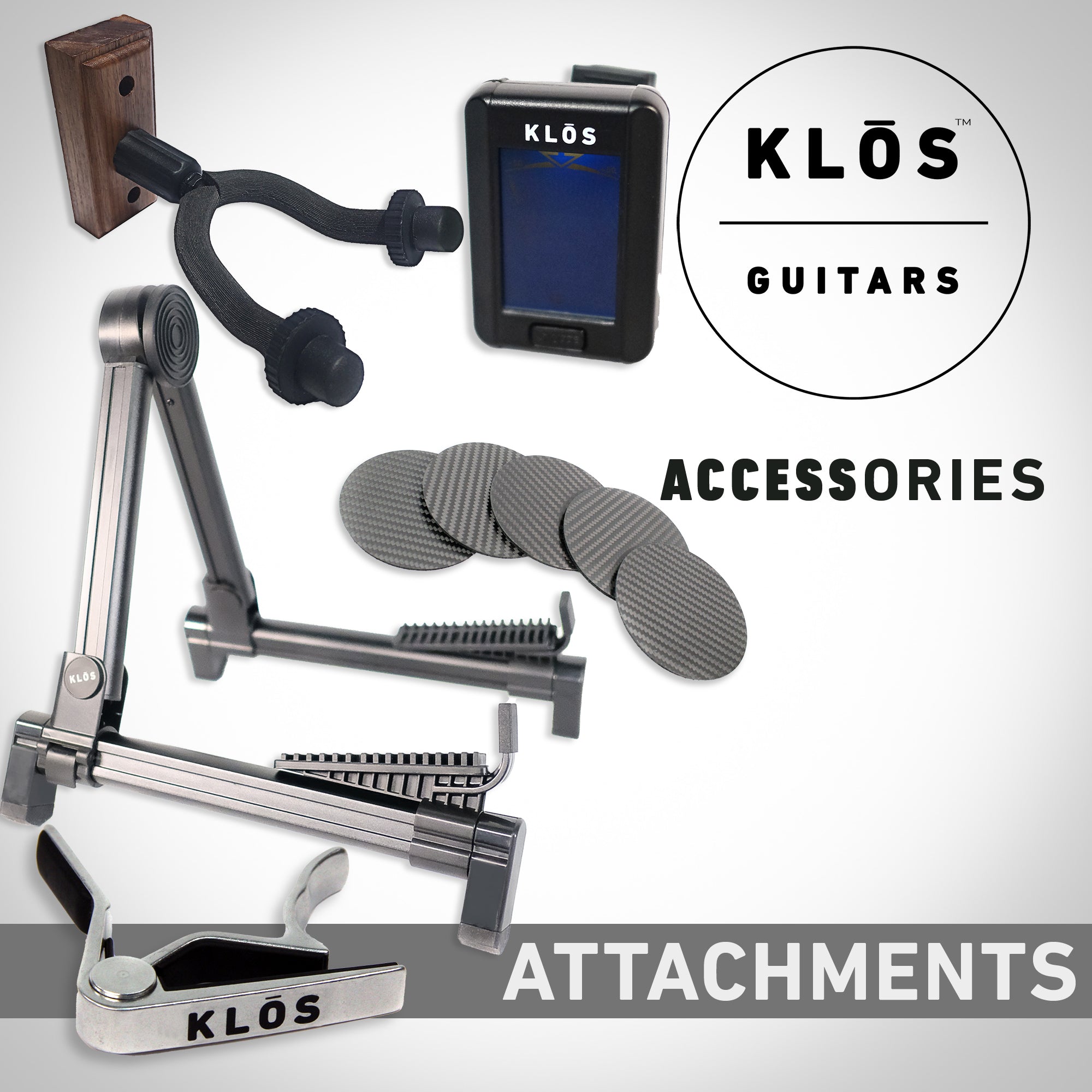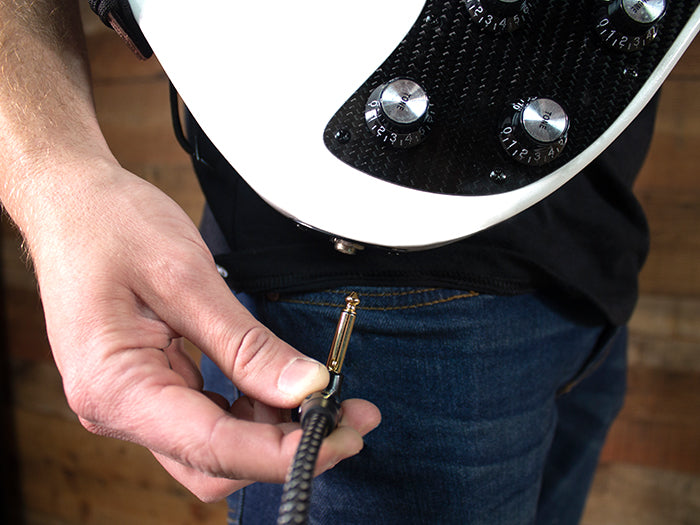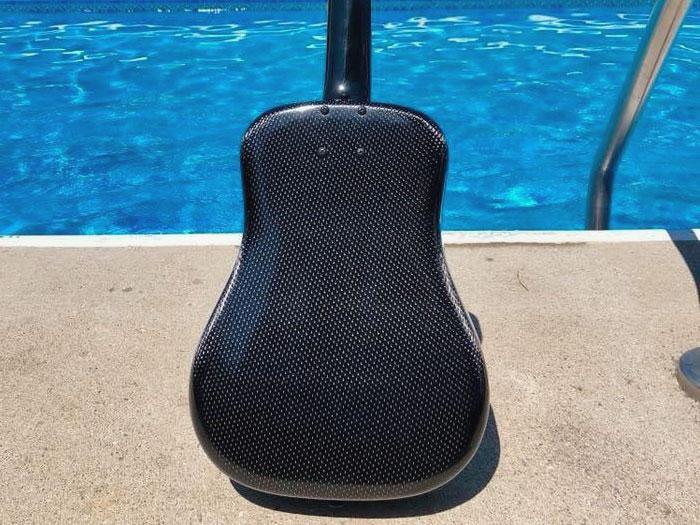If you're interested in upping your guitar cable game, consider the KLOS Guitars Silent Cable available now!
Guitar cables are pretty simple. A guitar cable is composed of strands of highly conductive copper coated in a protective shielding, with a jack on each end to transmit signal from your instrument. Despite the simplicity, there's some key info every musician needs to know including a big tip on how to not damage your gear with bad guitar cable practices.
Guitar Cable Anatomy and Materials
A conductive braided copper core is the foundation of any guitar cable. A variety of layers of insulation, shielding, and other protective layers surround this core to provide a durable and safe cable. Some cables such as the KLOS Silent Cable offer improved sound quality by using Oxygen-Free Copper.
The outer guitar cable jacket prevents the cable from sustaining damage. Guitar cable outer jackets can be made from a variety of materials, but most players prefers guitar cables featuring braided jackets due to high flexibility and durability.
Damage
Normal guitar can cause massive damage to your gear if not careful. Have you ever experienced that loud, annoying popping when plugging in your guitar with the amp on? This popping occurs because the cable creates a completed circuit prior to the jack being fully seated in place. Removing your guitar cable with the amp on can cause massive damage by blowing out your speakers. This can be avoided by using the KLOS Guitars Silent Cable or a Mute guitar pedal.
KLOS Guitars Silent Cable
Innovations in the guitar cable industry are extremely rare, but KLOS Guitars has recently launched a guitar cable with silent no-pop technology. Avoid that annoying pop when plugging in or unplugging your guitar and keep your gear protected from damage.
The KLOS Guitars Silent Cable is perfect for the musician that likes to frequently change instruments. Simply your gear rig with these amazing cables.
Guitar Cable, Guitar Lead, or 1/4" Cable
In America, most people call it a guitar cable but that isn't true for the whole world. In parts of Europe including take UK, it's much more common to hear a guitar cable referred to as a guitar lead or sometimes also as a 1/4" cable. You may also hear someone call a guitar cable an instrument cable. Any time you hear these phrases, they're probably talking about the guitar cables you're familiar with.
Guitar Cables for Bass and Other Instruments
If you've ever walked around your local music store it might be disappointing that you see so many guitar cables but where are the bass guitar cables? Luckily, all instruments can use the same guitar cable. No special cable or other gear is required to play the bass.
Cable Length
Cables can be purchased in almost any length but the most common varieties are 10 feet and 20 feet. It is rare to find cables any shorter than 10 feet as their functionality is limited to use only in very small spaces.
Cables in the 10-foot range are perfect for use in music studios, practice rooms, and bedrooms. 20-foot cables are perfect for musicians that might play shows on stage or need a little extra length between them and their amp while practicing at home.
Extra-long cables are available, but should mostly only be considered for specific scenarios due to inconvenience. Sound quality is not significantly affected at all by cable length.
Conclusion
Hopefully this guide has given you a little more perspective on one of the most underrated pieces of gear in any musicians kit. So from now on give the guitar cable the respect it deserves. The humble guitar cable is one common unifier among every group that ever made it in the Rock and Roll Hall of Fame.
If you're interested in upping your guitar cable game, consider the KLOS Guitars Silent Cable available now!
















